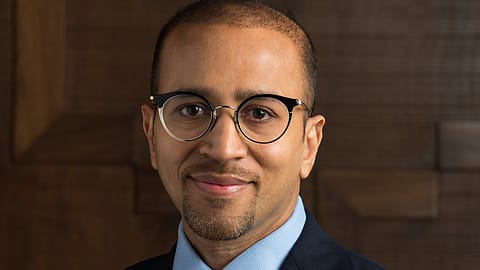Localisation is the key for global expansion: Emami
With products available in over 60 countries, Kolkata-headquartered Emami is steadily expanding its footprint overseas. And Iran is its next stop.

Consumer goods major Emami Ltd has set its sights on ramping up its presence in international markets, focussing on localising its product line, expanding its sales and marketing network, and collaborating with local partners. Emami’s international business contributes about 11% to the company’s overall revenue. In an interview with Fortune India, Prashant Goenka, director and head of international business division, Emami Ltd., spoke about the company’s plan to enter markets such as Iran, localising its product line, and building a strong presence in Russia backed by its flagship skincare brand BoroPlus. Excerpts:
What is your strategy for international markets?
Earlier, our target audience in the overseas markets was the Indian diaspora, but now were are targeting the local population. The shift has mostly taken place in the last two years. In certain markets and categories, we have become market leaders. It has changed the dynamics to a large extent. There is immense potential for Ayurveda (products) in the international markets as more consumers are looking at a holistic lifestyle. They are looking for natural, organic, and Ayurvedic products. In the overseas markets, we are approaching the consumer by being local. Sending goods from India would not be the right approach. A strong presence in the local market is important to grow faster. We need to be close to serve better.
How is Russia shaping up in terms of business?
BoroPlus is our main brand in Russia. Since its launch in Russia 20 years ago, people have loved the brand. It is the seventh-largest selling active cosmetic brand in Russia, and is available in nearly all pharmacies. BoroPlus is also the leading brand in the antiseptic and healing supplements category. The brand has many variants, specially developed for the Russian market; such as foot cream, hand and nail cream, and lip balm. The brand did so well because we started localising it. We worked on a strategy which included local television advertisement, selling on e-commerce platforms, and promoting the product through digital media. We kept the core of the product intact, but worked around the formulation of the cream, fragrance and packaging to make it more local.
We don’t have a manufacturing facility in Russia. We operate through contract manufacturers. We get our products manufactured through local manufacturing facilities based on our specifications and need. At Emami, we have a set process in place, which we follow strictly. It all depends on the market. In Bangladesh and Sri Lanka, we have our manufacturing facilities. Wherever it is viable and required, we set up our own units.
How do you change the formulation of a product like BoroPlus?
Recommended Stories
Russia is a country where almost nine months in a year are cold. The climatic condition is very different from India. We cannot have similar products that we have in India. The skin condition is also completely different. So, we worked on the formulation keeping in mind the severe climatic conditions. Indian consumers prefer fragrance, while in Russia they like mild or no fragrance at all. BoroPlus skin cream in Russia has no fragrance.
What about buisness from other countries?
Russia is one of the examples of the overseas markets. There are multiple products from our stable which are not available in India, but are present in other countries. We have foot, hand, and elbow creams, which are available in the overseas markets, but not in India. Russia is one such example. We have products specific to markets such as the Middle East, Africa, and South-east Asia. Like how we are focussing on BoroPlus in Russia, we have key brands for other countries. We have divided the zones in such a manner that the Emami brand can fit in, depending on the local requirement. In the last few years we have consciously focussed on localising our products.
What plans for this year?
(INR CR)
We have an aggressive plan to ramp up our international presence. Our key focus will be localisation. We are looking at markets like Iran. We are in the process of getting our products registered in Iran. Our research suggests it offers huge potential for beauty products. Iran doesn’t allow foreign direct investment, so we need to tie up with local partners. And getting the right partner is a challenge. We are in talks with some of them. This year we should be in Iran. Initially, we will focus mainly on the skin and haircare segments.